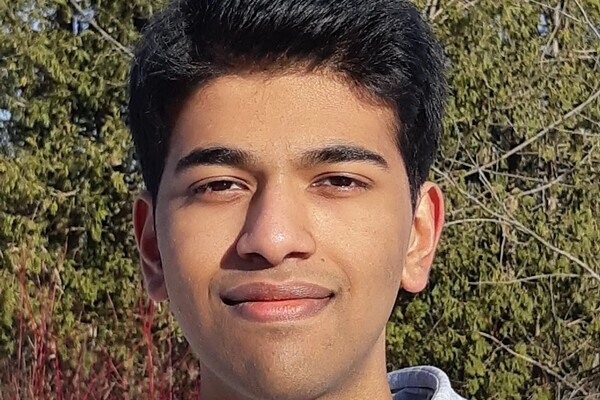Breadcrumbs
From Physics to Medicine
My Journey to Medical School
Embarking on the journey to medical school from a non-traditional background can be both challenging and rewarding. In this post, Ronny Thomas, 2T7 MD student, shares their personal experience transitioning from a physics undergraduate degree to pursuing a career in medicine. They discuss the motivations behind their decision, the obstacles they faced, and how their unique educational background has shaped their approach to patient care. Whether you're considering a similar path or simply curious about the intersection of physics and medicine, I hope Ronny's story provides insight and inspiration.

- What was your educational background prior to medical school and what inspired you to pursue it?
Prior to medical school I completed my undergraduate degree in physics. I had a deep interest in learning how the natural world worked, and was fascinated by the simplicity of mathematical equations that described extremely complex phenomena. I thought physics was also a great way to challenge myself and I loved the philosophical implications of its study.
- When did you decide to pursue a career in medicine and what motivated you?
I found academic physics to be intellectually stimulating but ultimately not as fulfilling of a career as I thought it would be. I’d felt a bit of a draw towards medicine since high school, and decided to pursue it during my second year of undergrad. I decided to pursue medicine because it too was extremely intellectually stimulating, with the opportunity to devote a lifetime to the study of a system that is arguably just as complex and philosophically profound as the universe. As well, the ability to serve humanity in a career that touches others deeply was a big draw.
- What challenges, if any, did you face when applying from a non-traditional background?
I found that studying for the MCAT was difficult, as much of the material wasn’t covered in my courses and had to be self-studied. Much of the material also focused more on memorization rather than the application of fundamental equations which I was more used to. As well, there was very little mentorship/guidance on applying to medical school as most of my peers and faculty were unfamiliar with the process. There was also a lack of exposure to healthcare-related careers in my program, and I really only became exposed to medicine due to the support of a family member who worked in healthcare.
- How have the skills and knowledge from your unique educational background shaped your approach to medicine and patient care?
I think that my physics background has definitely helped me in medicine. Physics is all about first-principles thinking, which involves taking complex problems and breaking them down into their most fundamental parts in order to use logic and math to solve them. This isn’t dissimilar to the way physicians approach complex patients and use evidence-based principles to develop treatment plans. It’s all problem-solving. In addition, I’ve found that knowing physics is useful for several medical specialties. A solid understanding of physics is helpful for fields like cardiology and radiology which apply a lot of physics principles in practice. As well, I’ve personally found the logical reasoning skills from physics to transfer over well when studying hematology, endocrinology, and anatomy. Lastly, an understanding of math, physics, or computer science is especially useful in conducting research, as there’s a big initiative to combine aspects of medicine and technology, with a particular focus on artificial intelligence.
- What advice do you have for prospective medical school applicants coming from non-traditional educational backgrounds?
My best advice is don’t assume that any one type of personality, educational background, or socioeconomic status is the best fit for medicine. Medicine is so incredibly diverse and the career possibilities are impossibly vast that I think anyone can find something that they find fulfilling and are passionate about in medicine. If you are curious about medical school I’d encourage you to definitely consider it, even if there’s another career that seems more streamlined with your educational background. Diversity of every kind is always needed in medical school, and you can easily find opportunities to combine your unique background with medicine - especially at UofT!
